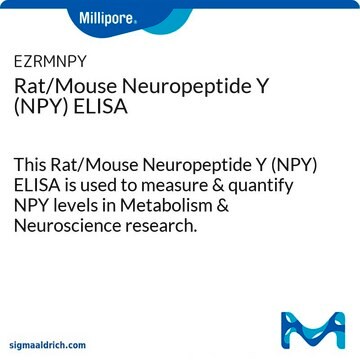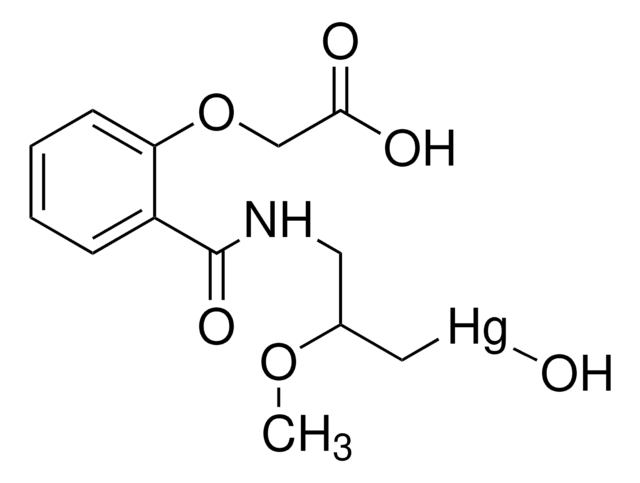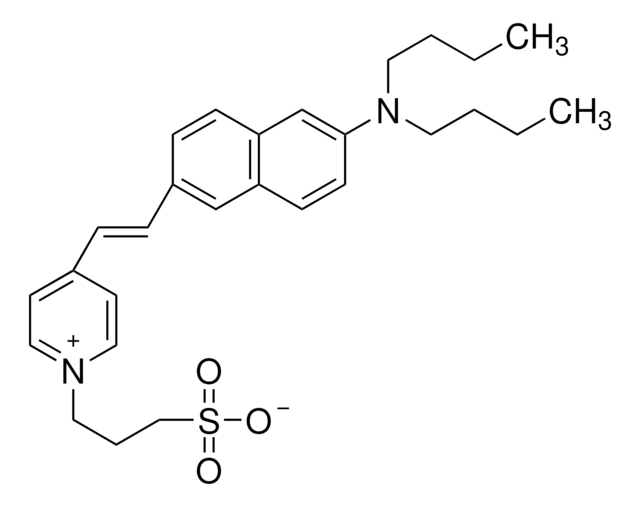V0627
Valinomycin
≥98% (TLC), ≥90% (HPLC)
Synonym(s):
Cyclo(L-Val-D-HyIva-D-Val-L-Lac-)3: HyIva = α-Hydroxyisovaleric acid, Lac = Lactic acid
About This Item
Recommended Products
Quality Level
Assay
≥90% (HPLC)
≥98% (TLC)
form
powder
storage condition
(Keep container tightly closed in a dry and well-ventilated place.)
color
white
solubility
DMSO: ≥50 mg/mL
H2O: insoluble
antibiotic activity spectrum
Gram-positive bacteria
parasites
viruses
Mode of action
cell membrane | interferes
storage temp.
2-8°C
SMILES string
CC(C)[C@@H]1NC(=O)[C@H](C)OC(=O)[C@@H](NC(=O)[C@H](OC(=O)[C@@H](NC(=O)[C@H](C)OC(=O)[C@H](NC(=O)[C@H](OC(=O)[C@@H](NC(=O)[C@H](C)OC(=O)[C@H](NC(=O)[C@H](OC1=O)C(C)C)C(C)C)C(C)C)C(C)C)C(C)C)C(C)C)C(C)C)C(C)C
InChI
1S/C54H90N6O18/c1-22(2)34-49(67)73-31(19)43(61)55-38(26(9)10)53(71)77-41(29(15)16)47(65)59-36(24(5)6)51(69)75-33(21)45(63)57-39(27(11)12)54(72)78-42(30(17)18)48(66)60-35(23(3)4)50(68)74-32(20)44(62)56-37(25(7)8)52(70)76-40(28(13)14)46(64)58-34/h22-42H,1-21H3,(H,55,61)(H,56,62)(H,57,63)(H,58,64)(H,59,65)(H,60,66)/t31-,32-,33-,34-,35+,36+,37-,38-,39-,40+,41+,42+/m0/s1
InChI key
FCFNRCROJUBPLU-RPUZOQEISA-N
Looking for similar products? Visit Product Comparison Guide
Related Categories
General description
Application
- to equilibrate intracellular pH and extracellular pH of 5 (and 6-)-carboxyfluorescein succinimidyl ester (cFSE) in Escherichia coli strain B23
- as an ionophore to equilibrate intracellular pH and extracellular pH of lactic acid bacteria (LAB) strains
- to establish the desired pH for acid-base transition and formation of K+-valinomycin diffusion potential
Biochem/physiol Actions
Packaging
Other Notes
Signal Word
Danger
Hazard Statements
Precautionary Statements
Hazard Classifications
Acute Tox. 1 Dermal - Acute Tox. 1 Oral
Storage Class Code
6.1A - Combustible acute toxic Cat. 1 and 2 / very toxic hazardous materials
WGK
WGK 3
Flash Point(F)
Not applicable
Flash Point(C)
Not applicable
Personal Protective Equipment
Certificates of Analysis (COA)
Search for Certificates of Analysis (COA) by entering the products Lot/Batch Number. Lot and Batch Numbers can be found on a product’s label following the words ‘Lot’ or ‘Batch’.
Already Own This Product?
Find documentation for the products that you have recently purchased in the Document Library.
Customers Also Viewed
Our team of scientists has experience in all areas of research including Life Science, Material Science, Chemical Synthesis, Chromatography, Analytical and many others.
Contact Technical Service










